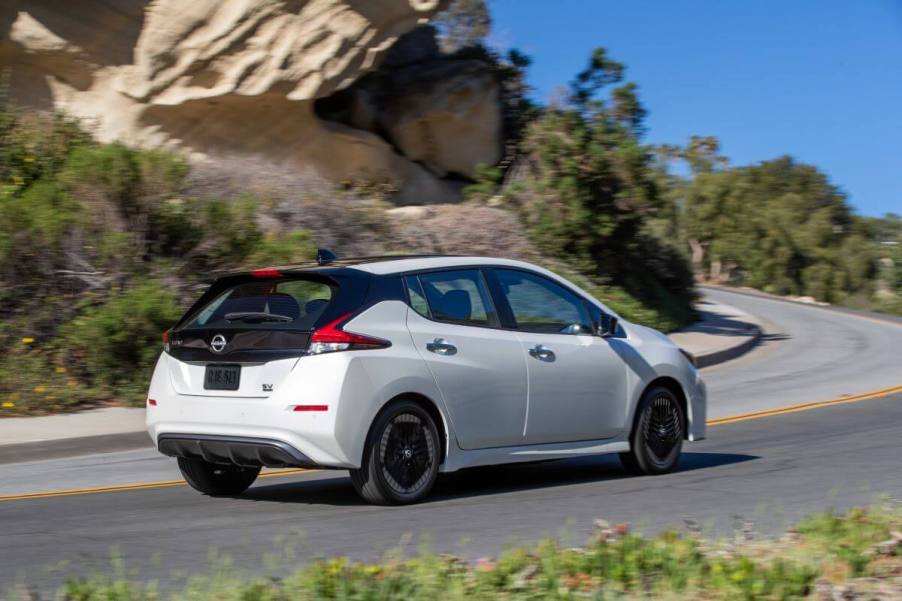
The Least Satisfied EV Owners, According to a New Study
You’ll be hard-pressed to find an automaker that isn’t trying to break into the electric vehicle market these days. From plug-in hybrids to all-electric models, consumers are embracing and demanding EVs. However, not all automakers get the details right the first time around.
J.D. Power recently released its study, highlighting EV owners’ favorite and least favorite models so far. While it might surprise you to learn the favorites do NOT include Tesla GM, Ford, or VW, the worst performer and least favorite on this list will blow your mind. We dove in to learn more about this electric car and its least satisfied EV owners.
What the latest J.D. Power study shows about EVs
In February, the J.D. Power 2023 U.S. Electric Vehicle Experience Ownership study was released, and everyone’s been buzzing. This study surveys ownership experiences based on EV model vehicles and within the first year of ownership, according to the Detroit Free Press. The scoring evaluated a slew of metrics and experience, too.
Driving enjoyment, technology features, exterior styling, interior comfort, ease of charging at home, battery range, and overall cost of ownership play into the scoring. Additionally, in conjunction with PlugShare, J.D. Power culled through the survey results, assigning ratings along the way. Ultimately, those EVs with the highest scores top the list of favorite EVs. With more than 7,070 owners of battery-electric vehicles, it’s a pretty solid pool of opinions.
The Nissan Leaf scored the lowest with owners

The mass market results of the J.D. Power study shocked many. The top two favorite EVs weren’t the big-name electric contenders you’d think. The highest score of 782 went to the Mini Cooper Electric. Coming in second was the Kia EV6 SUV, scoring 762. However, that’s not the only surprise.
The average score for the mass market category, not luxury EVs, was 730. So, when the Nissan Leaf showed up dead last with a dismal score of 698, some people were head-scratching. Nissan typically performs well in ownership satisfaction studies. So, why did the Nissan Leaf seem to tank in this J.D. Power study?
Why the Nissan Leaf was such a dismal performer
Some key findings that outline dissatisfaction among the mass market EV contestants might play a role in why the Nissan Leaf scored so poorly. For example, the most common complaint and problematic feature across all the vehicles was “lame infotainment.” First-time EV owners look for two primary benefits with their new EVs – vehicle performance and lower operating costs. It could be that the Nissan Leaf just fell short in the overall thumbs-down sentiments.
Additionally, it might not have to do with the Nissan Leaf doing anything wrong at all. The big shocker out of this study is the Mini Cooper Electric bringing the highest score. Its driving range doesn’t compare to some of the others. Brent Gruber, the executive director of EV practice for J.D. Power, said owners seem more willing to overlook low battery range. They do so because they really love the feel, quality, and styling that much more.
Moreover, look at the other scores compared to the Nissan Leaf’s score. Sure, the Nissan Leaf scored the lowest, with 698. However, the five EVs above it are still within a 50-point margin. The Chevy Bolt EV (711,) the Chevy Bolt EUV (716,) the Ford F-150 Lightning (723,) and the Volkswagen ID.4 (735) aren’t that far ahead.
The Nissan Leaf may have scored the lowest in this EV satisfaction study. Still, it might not be because Nissan Leaf owners aren’t satisfied. It could mean other EV owners love their electric rides a little more than Leaf owners like theirs.



